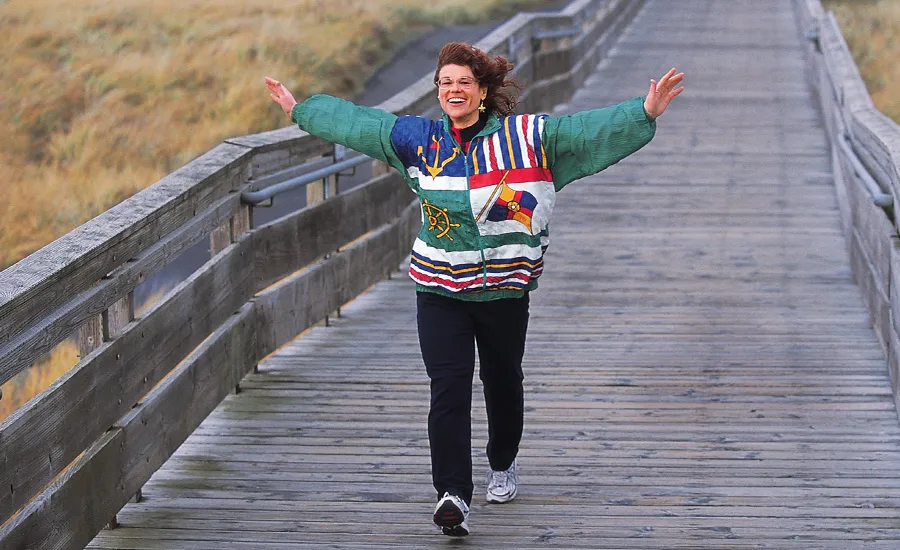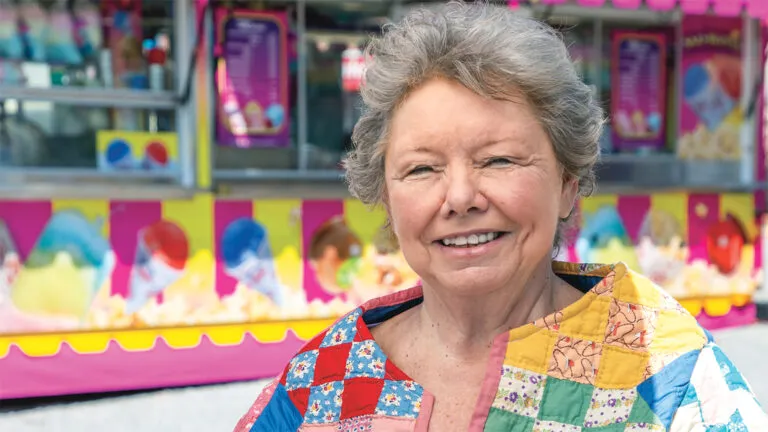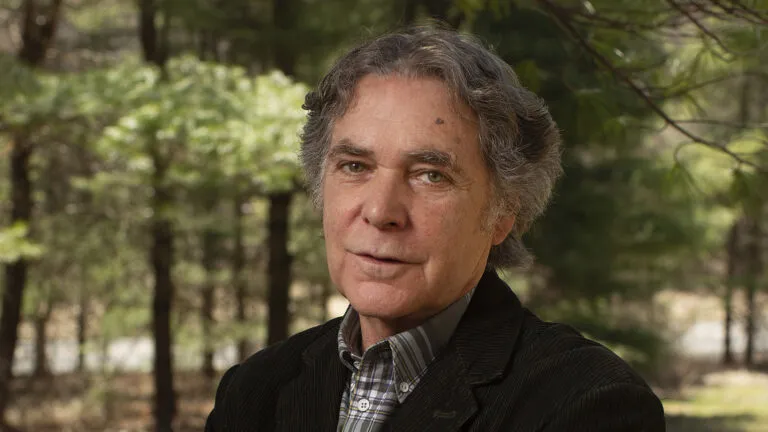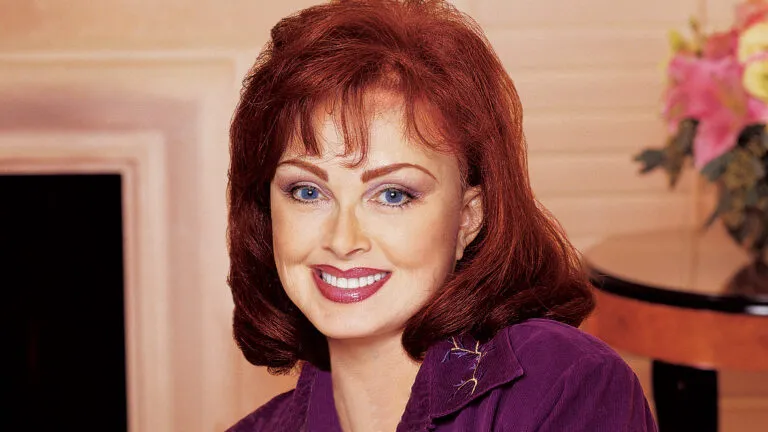I grabbed the railing and hoisted myself up three steps to the community hall. Gasping for breath, I lumbered into a room where a dozen people sat in folding chairs. One was empty, but I figured it would collapse under my weight.
“Have a seat here,” said a large woman on the sofa along the wall. People moved over to make room for me. Plenty of room.
I was 45 years old, five foot six—and weighed 396 pounds. The only clothes that fit me were size 60 blouses and voluminous elastic-waist pants. My shoes all had Velcro straps; I couldn’t reach my feet to tie laces.
I had recently bought a new full-size car because it was the only one whose steering wheel I could fit behind. I was miserable. Yet I couldn’t admit it to anyone. I couldn’t even talk about it.
The meeting started right on time. People introduced themselves and told why they were there, how many pounds they’d lost and what they’d eaten that week. Then it was my turn. I forced out the words.
“I’m Sylvia,” I said. “This is my first time at a support group. I don’t really have anything else to say.”
My name wasn’t Sylvia, but I was too ashamed to let anyone know who I really was. Besides, I was used to keeping secrets. I was always telling people that I was trying to lose weight.
“It’s not my fault that nothing works,” I declared. What I wouldn’t admit was that my life was devoted to eating on the sly.
As far back as I can remember I loved to sneak. Mom made big batches of chocolate-chip cookies for our family of six and stored them in bags in the freezer. I’d take a bunch and hide them in my room.
Whatever was bothering me, however happy or sad or bored I felt, gorging myself always helped, as if I could fill up a sense of emptiness inside. Even when I was a child my eating was dishonest.
Later in college, studying for exams, I’d devour my way through rolls of raw cookie dough. Or polish off a bag of chips and then start in on the candy bars I’d stashed in the back of my desk drawer. I hid food like an alcoholic hides booze.
Marriage didn’t help me cope any better with my problem. When I went through a painful divorce, my weight crept up … 200, 250, 300 pounds. Only food could fill the void.
I taught middle-school English and social studies, and I hated overhearing kids mutter “fatso” and “whale” behind my back. I slipped deeper into depression, which was worsened by failed diets and bouts of overeating. Finally, I started counseling sessions with a therapist in the spring of 1999.
“Do you watch what you eat?” my counselor asked in our first session. “Yes,” I said. Actually, I was watching it go into my mouth. I would stop in a restaurant for a meal, then drive to the other side of town and have another meal—then head home and have a third.
That way, I convinced myself, nobody would know just how much food I was really consuming. “You need to talk to some people who struggle with overeating,” my counselor suggested. “There’s a group that meets every Saturday downtown.”
“I’m not a joiner,” I said. “I can change by myself.”
But the truth was, I refused to imagine my life any other way. I left the counselor and headed for a drive-thru where I picked up several value meals plus extra orders of fries. “For my coworkers,” I lied to the boy who handed me the three bulging bags.
The next week my counselor laid it on the line. “I’m not going to see you anymore,” she said, “unless you attend a group. And you’ve got to go to at least twelve meetings.”
That’s why I was sitting on the sofa at the support group, feeling more uncomfortable by the minute. “I’ve had some bad moments this week,” the woman next to me announced, “but with God’s help I managed to keep track of my calories and eat three sensible meals a day.”
God’s help? I was sure God couldn’t help me. “I was feeling down,” a man said, “but I realized overeating wouldn’t change anything, not really. So I called a friend to go to a movie instead.” But food did change things for me. It was my friend.
I clapped along with everyone else, but deep down inside I had a terrible feeling. Not me. These other people might be helped by all this “sharing.” Maybe they were even losing weight. But me? I was a hopeless case.
As soon as people realized my secret, they would turn away. Even these folks. Especially these folks, who certainly didn’t need a loser like me dragging them down. And all this talk of God. What would God want with someone like me?
I left the meeting and drove straight to the grocery store. On the way home I wedged a pint of Ben & Jerry’s between my knees so I could eat as I drove.
“I went to the meeting,” I told my counselor.
“Did you talk?” she asked.
“Sure,” I said. I wasn’t exactly lying, but I wasn’t being honest either. All I’d promised was to attend 12 meetings. The weeks went by, and the most I ever said to the group on Saturday morning was “My name is Sylvia” and “I don’t feel like talking today.”
The eleventh Saturday approached. I was nearly home free. That Friday in school I had lunch with the other teachers and made a production of having only half a turkey hero.
“I’ll eat the rest for lunch tomorrow,” I announced, thrusting it back in its brown bag. Easier to finish it off between classes in my room when no one was looking.
I headed down the hall for class, moving slowly through the student throng. “Moooo …” came the taunt of some boys behind me. The sound seemed to echo in the hall. I pretended I hadn’t heard.
An image stormed through my mind of me sharing this ugly humiliation with my support group. I blotted it out. I could never talk about something like this, never bare my soul. I thought of the sandwich in my bag and how soon I could get to it.
Saturday morning the leader said, “Today we’ll talk about hope.” Hope? Vaguely I heard the others talking. Round the circle they went. Then it was my turn. Waves of despair I’d been suppressing for years surged up and nearly took my breath away. In a flash it all came pouring out.
“I don’t have any hope,” I began. “I can’t even remember what hope feels like.” I blinked frantically to keep back tears. Go on, a voice inside me said. Go on. Somehow I knew I needed to do this, to accept, acknowledge and feel the pain.
I grabbed a tissue and continued. “I have no hope of ever being a normal size again. I have no hope at all. …” I was shaking. I started to sob so hard I couldn’t say another word. I motioned for the next person to go ahead and take her turn.
The meeting ended. I dodged the hugs and headed to my car. I drove out in a spray of gravel. I’m never going back. I’ve made a fool of myself. There is no hope for me. God, even if you are listening, you’re wasting your time.
On the way to the grocery store I stopped at the post office to pick up my mail, a little surprised that anything would get between me and a meal. Among the bills and catalogs was a thick envelope from a friend I’d taught with but hadn’t heard from in months.
Inside was a pretty card on which my friend had written: “Here’s something for you to hold on to.”
I pulled the tape off the small package she’d enclosed. A flat polished rock of white-and-purple marble dropped into my hand. Engraved on it was a single word: HOPE. I gripped it tightly in my hand.
I drove home and put the rock in the center of my dining room table. I didn’t want to eat at all, as if that tiny stone were a great rock that stood between me and my compulsion. It was Day One of my recovery.
The following Saturday I went back to the meeting. Number 12. I wasn’t ashamed to speak. I couldn’t afford to be ashamed. “I’m determined to lose this weight,” I said. “With God’s help and your encouragement I know I can do it.”
I had already begun planning. I would set up what worked for me. Only three meals a day, no snacking in between, yogurt instead of ice cream, hold the cheese and mayo and consume half the portion, maybe less.
I couldn’t exercise yet—I could barely even move—but foresaw the day when I would get up every morning for a brisk walk. “I can do it,” I announced. “I’m not alone.”
I took a deep breath. What I’d said was scary, but I’d made my commitment out loud, and I wasn’t backing down. “I have something else to tell you,” I said. “My name’s not Sylvia. My name is Jan. And I’m really glad to be here.”
Download your FREE ebook, Paths to Happiness: 7 Real Life Stories of Personal Growth, Self-Improvement and Positive Change.





